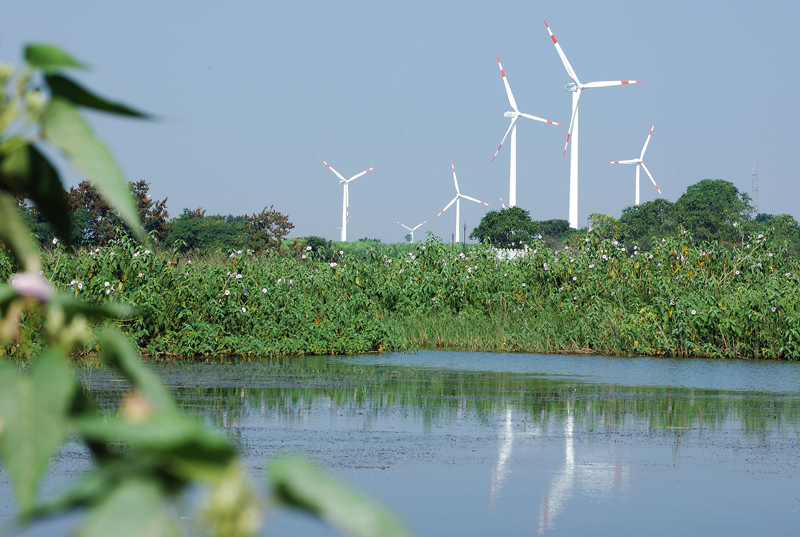Wednesday, 04/03/2026 | 02:06 GMT+7
The western Indian state of Maharashtra has announced its new renewable energy policy through which it plans to achieve an installed renewable energy capacity of 14.4 GW by the end of the next 5 years.

A Suzlon Group manufactured wind farm in Dhule, IndiaThe state government of Maharashtra has devised an impressive policy to promote the expansion of renewable energy capacity. The policy targets an installed solar power capacity of 7.5 GW, wind energy capacity of 5 GW, and biomass-based co-generation capacity of 1 GW by the end of the next 5 years. The policy also envisages an installed capacity of 400 MW of small-scale hydropower, 300 MW of power generation capacity based on agricultural waste, and 200 MW based on industrial waste.
The government estimates that the new capacity additions would result in an investment of around $640 million. The state government is expected to receive around $600 million in terms of regulatory fees.
The Maharashtra government plans to significantly increase the share of electricity from renewable energy sources in the total power demand of the state. The target is to increase the share to 15% over the next 5 years.
So far, almost none of the states have been able to achieve the set renewable energy share targets as their respective utilities are in poor financial states and claim to have insufficient funds to purchase electricity from renewable energy projects. To overcome this issue, the state government has mandated that renewable energy projects sell electricity at tariffs determined through competitive auction rather than the feed-in tariffs fixed by the state regulatory body. This is expected to give the utilities additional incentive to purchase electricity from renewable energy sources.
For project developers, too, the state government has offered several incentives. Regulatory charges such as electricity duties and power evacuation charges will either be waived or refunded. The developers not participating or making a successful bid in the competitive auction will be free to sell the electricity to any buyer.
Anh Tuan







